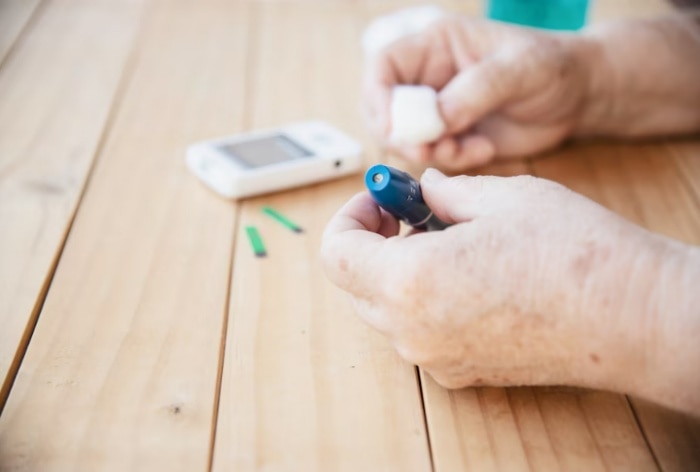Diabetes is a metabolic condition that million of people deal with. Read on to know if type diabetes can be reversed or not.
Diabetes is one of the leading health concerns in India. with over a million population suffering with this metabolic condition, immediate relief response needs to be undertaken. Type 1 diabetes (T1D) is an autoimmune condition characterised by the destruction of insulin-producing beta cells in the pancreas. Unlike type 2 diabetes, which is often linked to lifestyle factors and can sometimes be managed or reversed through diet and exercise, type 1 diabetes is not currently reversible. However, ongoing research is exploring potential avenues for treatment and management.
In T1D, the immune system mistakenly attacks and destroys the beta cells, leading to insufficient insulin production. Insulin is crucial for regulating blood sugar levels; without it, glucose accumulates in the bloodstream, causing hyperglycemia. While T1D cannot be reversed, several management strategies can help individuals lead healthy lives.
Tips to manage Type 1 Diabetes
- Insulin Therapy: Patients with T1D require lifelong insulin therapy to control blood glucose levels. This can involve multiple daily injections or the use of an insulin pump.
- Diet and Exercise: Adopting a balanced diet and maintaining a regular exercise routine can help improve insulin sensitivity and overall health, although these measures do not reverse the condition.
- Education and Support: Understanding the disease, including recognising signs of hypo- and hyperglycemia, is crucial for effective management. Support from healthcare professionals, family, and support groups can also bolster emotional well-being.
Women whose Type 1 Diabetes was reversed
Recently, a report claimed that Chinese scientist have successfully managed to reverse type 1 diabetes in a woman. According to a PTI report, Chinese scientists claimed to have cured a chronic type-1 diabetes patient using cell transplants in what was stated to be the first such case in the world.
The patient, a 25-year-old woman who had the chronic condition for over a decade, was able to naturally regulate her blood sugar some two and half months after undergoing the minimally invasive surgery, the Shanghai-based Chinese news outlet, The Paper reported. The young woman from Tianjin was diagnosed with type 1 diabetes 11 years ago and had already undergone two liver transplants and one unsuccessful pancreatic islet cell transplant.
Following the CiPSC islet transplant, the patient’s fasting blood glucose levels gradually normalised, and her need for external insulin steadily decreased. She completely stopped needing insulin injections 75 days after the transplant, and the improvement has lasted for over a year, the report said.
She used to experience significant swings in blood sugar levels and also suffered multiple episodes of severe hypoglycaemia.
After five months post-transplant, her sugar levels stayed within the target range more than 98 per cent of the time, and this stability has been maintained, it said.
Scientists are investigating ways to stimulate the regeneration of beta cells or replace them through stem cell therapy. This could potentially restore natural insulin production.
As of now, type 1 diabetes cannot be reversed apart from the recent claim by Chinese scientist. However, advancements in research and technology are paving the way for improved treatments and potential breakthroughs in the future. Individuals with T1D can manage their condition effectively through insulin therapy, continuous monitoring, and lifestyle strategies. Ongoing research offers hope for a future where T1D might not only be managed but perhaps even cured. For now, education, support, and proactive management remain key to living well with type 1 diabetes.

